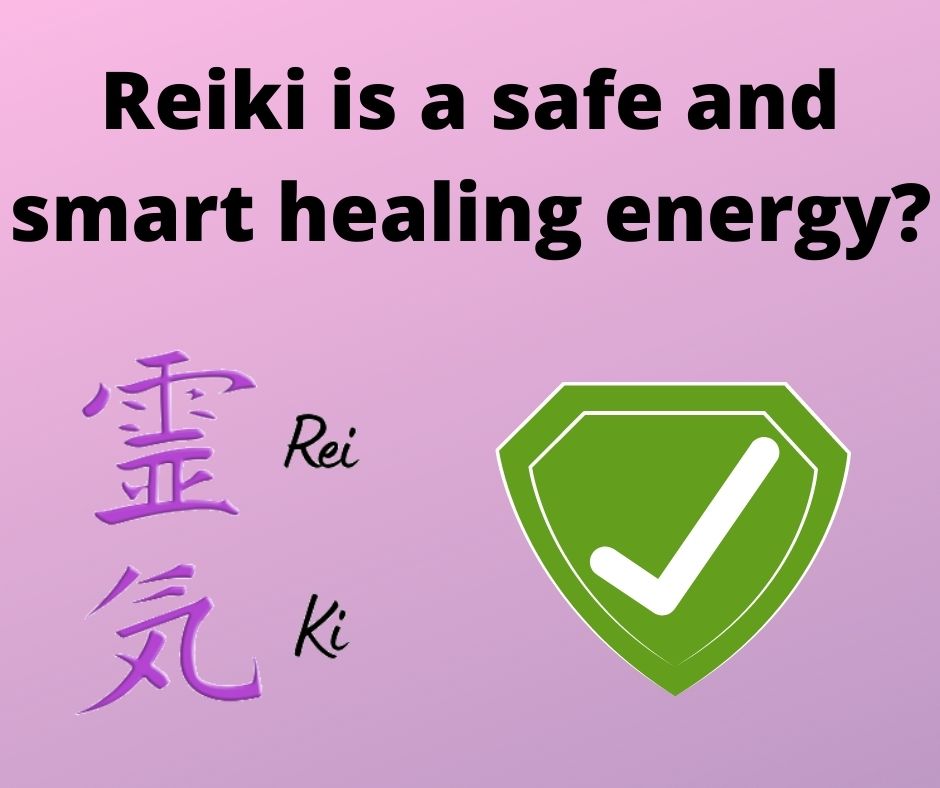Date: Mon Sep 27 2021 00:00:00 GMT-0700 (Pacific Daylight Time)
Universally it is claimed by Reiki practitioners that the Reiki energy source ensures it is completely safe. The claim comes from an assertion that Reiki is an intelligent energy, and is somehow distinct from the "simple Chi" used in other energy healing practices. Isn't it suspicious when claims like this are made by folks selling a product or service? Didn't the tobacco industry make a similar claim?

By David Herron
In The Spirit of Reiki (Walter Lubeck, Frank Arjava Petter and William Lee Rand), it's suggested that Reiki is somehow distinct from other forms of energy healing. In the chapter, Reiki Energy Basics, William Rand writes that he's taught over 3500 students, some of whom were already experienced energy healers. Every one of them found an increase in energy strength after taking Reiki training.
He then asserts that Reiki is far more than "simple Chi". Instead, it is guided "directly by the higher power", meaning God, or the Divine, or the Universal Mind, or whatever other phrase you prefer. As an energy directly guided by God, Reiki automatically knows what to do to help the person heal, and it automatically knows where to go. Because Reiki is guided by the higher power, it cannot do harm, and will always provide positive healing benefits.
Literally everyone who teaches and practices Reiki says the same thing.
The questions we must be able to answer are: Why would Reiki be inherently safe? Is it actually inherently safe? Is there something Reiki practitioners can do which will make Reiki unsafe, or keep Reiki safe?
As Reiki practitioners, our clients will want to know answers to those and related questions.
How might Reiki be inherently safe?
Let's first start with a theoretical basis upon which we can justify the claim that Reiki is inherently safe.
In The Reiki Symbols we learned about not only the Reiki symbols, but their background. Namely, that Dr. Usui was studying a form of esoteric Buddhism when he "discovered" Reiki. The temple on Mt. Kurama where he studied has the Reiki symbols, and many more, painted on its walls.
In that branch of Buddhism, the symbols are a kind of gateway to access certain states of being. Generally speaking any sacred symbol is a pictorial abstraction of a spiritual state, and there are symbols of all kinds used in religious practices all around the world. To the esoteric Buddhists, the symbols represented innate primordial divine energies that are direct emanations of the divine. To learn more see The Big Book of Reiki Symbols.
In other words, being derived from esoteric Buddhist symbols, the Reiki symbols have a similar role. When a Reiki symbol is activated, we are then tapping into a divine emanation.
That gives us a frame of reference for understanding the claim that Reiki energy is inherently smart.
The use of the Reiki symbol fits the same role as, for example, reciting The Chaplet of Divine Mercy or other prayers taught within Christianity. Both are examples of a ritualized thing, either words or pictures, with which we bring forth the divine presence. When we're taught in a Christian church to repeat the Lords Prayer, isn't that prayer also expected to be smart and bring to us whatever "our daily bread" means on any given day?
What if the Reiki practitioner strays from Reiki?
That theory sounds plausible and might well be true. But, what if you end up in a court of law defending your claim that Reiki is safe and therefore it cannot have harmed your client? Will the judge accept those arguments?
Having studied other forms of Energy Healing, I have a suggestion to make.
The guarantee that Reiki is safe, and driven by smart energy, might well be true, but it relies on the practitioner staying out of the way of Reiki doing its thing.
Since there is an innate ability possessed by everyone to access and utilize subtle energies, it is within our capability to use our will to interfere with the flow of Reiki energy. I've noticed time and again, that the divine mind knows quite a lot more than our puny human mind, but that it's very tempting for a human to think s/he knows how to do something and to go ahead and do it instead of allowing the divine mind to flow freely. It's quite possible for our puny human mind to try to start directing Reiki (or other subtle energy).
The experienced Reiki practitioner might say "well, don't do that", and s/he would be correct. But, learning to stay out of the way of the divine is one of those things every spiritual practitioner faces.
Usui taught practices to keep our ego out of the way
In fact, it seems that Dr. Usui's teachings include certain practices that, if followed with integrity, train the practitioner in staying out of the way.
In The Original Reiki Handbook of Dr. Mikao Usui, we learn that Dr. Usui taught a very different form of Reiki than what we learn in Western Reiki. He did a variety of things with his hands, such as using one hand to receive energy and another to send. More importantly, his students were expected to follow intuition in delivering Reiki to their clients, rather than rigidly following a prescribed sequence of hand positions as was taught by Dr. Hayashi and Mrs. Takata.
In Usui's teachings, the practitioner is expected to undergo daily meditation practices, and to refresh those practices while giving a Reiki session. In the introductory text, Arjava Petter has a number of interesting things to say corresponding to what I just wrote concerning getting out of the way of Reiki.
By the phrase "Western Reiki", we mean the Reiki derived from Mrs. Takata's teachings that is distinct from the Reiki derived directly from Usui's teachings. One feature that distinguishes Usui Reiki from Western Reiki is these practices, and the intuitive nature of how Usui Reiki is practiced.
There are three steps:
- The Gassho meditation, which is stilling yourself, and your mind, while holding your hands together in a prayer pose at chest level.
- Reiji-Ho which is accessing the Reiki energy. One aspect of Reiji-Ho is to pray for the recovery and health of the client on all levels, and to know that you (the puny human mind) cannot know what is "good" or "bad" for our clients, and instead we put that decision into the hands of the Reiki energy. He writes: "Reiji can only be practiced effectively when the ego is temporarily switched off through meditation.... The spiritual attitude of Reiji is: Thy will be done. After all, we are not the ones who accomplish the healing. Instead, it occurs at best through us."
- Chiryo is where we give treatment to our client. During treatment, the practitioner is to give free rein to his/her hands to travel to different places, do different things, to stay in one place or another for as long or as short as is needed, and so on. It is very important to not be concerned about the outcome, and to have zero expectation of any particular result.
In other words, it seems that Dr. Usui is fully agreeing with the suggestion I wrote above. The three stages of meditative practice, if implemented with integrity, bring the practitioner into a state of allowing the Reiki energy to flow through with minimal interference from the practitioner.
What might it look like for the ego to interfere in Reiki?
What does this interference look like? I can only describe my own experience, the most vivid of which occurred during my training in the Barbara Brennan School of Healing. At BBSH, the training includes a lot of complex techniques, and while learning about "organ restructuring" (a technique to straighten out energy structures around organs of the body) I became aware of great fear in my mind because my mind did not know how energy healing worked. That fear impeded the smooth flow of energy and the healing practice, and even caused pain sensations in me.
In other words, our minds are active things. Our mind is split into conscious and unconscious parts, meaning we're only consciously aware of part of what the mind is doing. One purpose for meditation practice is gaining more awareness of what the subconscious mind does.
This sort of mental interference is common among spiritual practitioners. There are a lot of techniques we can learn for getting out of the way. The teaching from Dr. Usui is one such example.
One practice I follow for this purpose is repeating a simple prayer like doamne miluieste, a Romanian phrase regularly used in Orthodox Christian prayers, roughly meaning Lord have mercy. I keep my mind focused on correctly repeating the words, while being open to any and all manifestations of the divine that might choose to be present. One purpose seems to be keeping my mind busy.
Summary
We've learned a few things about how Reiki might actually be as safe as is claimed. Its design is to tap into primordial divine energies and wisdom. While this may not be enough for a court of law, it can be enough to settle most doubts we ourselves might have, or our clients might have.
It might be foolish to trust ourselves to not interfere with Reiki. Consider all the ways in history where spiritual practitioners thought they knew better than the divine God? Consider what it might mean for your practice of Reiki if you were to stray?




 Reiki and Healing books, videos, tools
Reiki and Healing books, videos, tools





